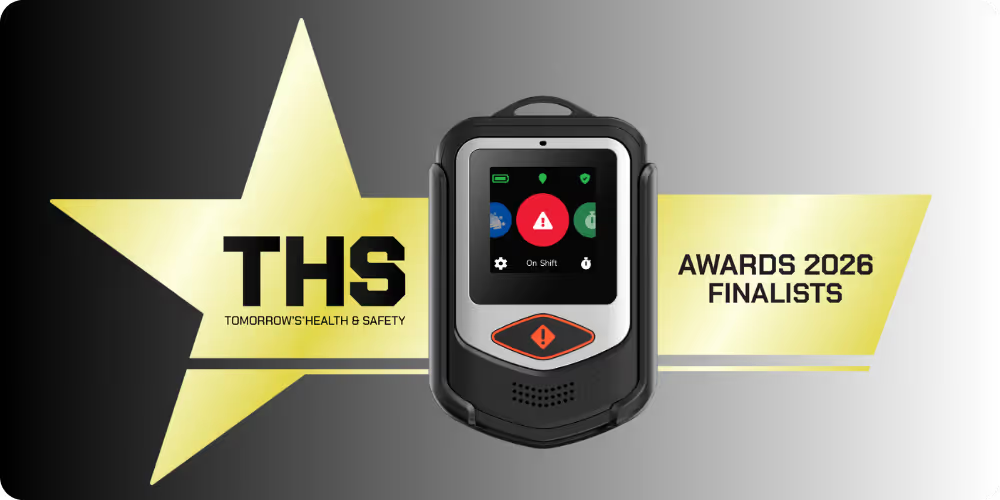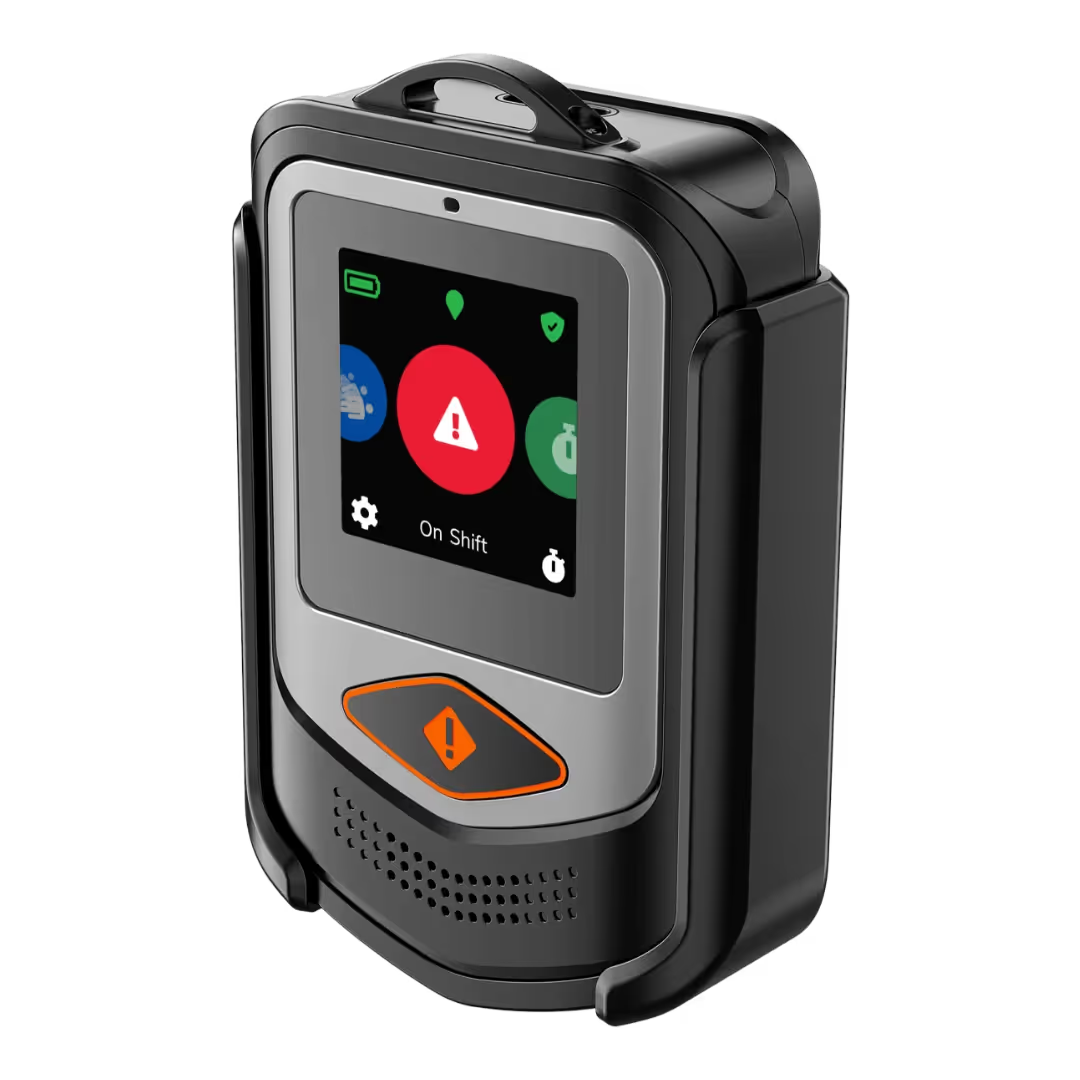Lone Working and the Law: Legal Responsibilities for Employers
Explore the key legal considerations for lone working with insights from Bridget Green at LegalEdge. Learn how to meet your obligations, reduce risks, and protect employee wellbeing.
.avif)
Lone Working and the Law: Key Legal Responsibilities Every Employer Must Know
In simple terms, legislation refers to laws passed by Parliament, while regulations are detailed rules made under that legislation to explain how the law must be followed in practice. In a workplace context, employers must comply with both legislation and regulations, as together they form the legal framework governing health and safety, including lone working.
Lone working poses unique challenges for employers, from managing health and safety risks to ensuring employee wellbeing. Bridget Green from our trusted partner LegalEdge (the fractional in-house lawyers) explores some key legal considerations around lone working and answers some common questions we regularly hear about how employers can comply with their legal obligations, reduce risks, and ensure staff wellbeing.
What Is a Lone Worker Under UK Law?
While there is no statutory definition of a "lone worker", the Health and Safety Executive (HSE) defines it as someone who works by themselves without close or direct supervision, whether for part or all of their working time.
Who Can Be Classed as a Lone Worker?
Lone workers exist in nearly every industry. Examples include:
- Delivery drivers, engineers, and field technicians
- Security guards, petrol station staff, and cleaners
- Shop workers, warehouse staff, and healthcare professionals
- Sales reps, area managers, and homeworkers
Remote and hybrid workers are also lone workers, even if they have occasional contact via phone or video call.
What Legal Duties Do Employers Have Toward Lone Workers?
These duties arise from a combination of primary legislation and supporting regulations, meaning employers must understand both the law itself and the regulatory requirements that sit beneath it. UK health and safety law requires you to take reasonable steps to mitigate foreseeable risks for all staff—including lone workers.
Employers must:
- Conduct suitable risk assessments
- Implement reasonable control measures
- Protect both physical and mental wellbeing
- Provide appropriate training, communication, and supervision
What Key Risks Do Lone Workers Face?
While all workers face some level of risk, lone workers are particularly vulnerable due to lack of immediate support. Common risks include:
- Violence or abuse from the public
- Mental health issues caused by isolation
- Medical emergencies without help nearby
- Remote or isolated work environments
- Poor lighting, unsafe equipment, or lack of visibility
For specific risk examples, read: Dynamic Risk Assessments Explained
What are the Workplace Violence Risk Factors to Watch?
Certain jobs—especially public-facing roles—carry a higher risk of aggression or assault. Look out for situations involving:
- Late-night or early morning shifts
- Staff enforcing rules or authority (e.g. security)
- Interaction with intoxicated individuals
- Carrying money or high-value items
Download a free Workplace Violence Checklist
Are Legal Duties Limited to Employees?
No. The same legal obligations apply to all categories of workers, including:
- Employees (full-time or part-time)
- Contractors and freelancers
- Agency staff and temporary workers
- Legal compliance applies regardless of contract type or duration.
What Does Legal Compliance Look Like for Lone Working?
Step 1: Complete a Risk Assessment
Identify hazards affecting lone workers and consider how to control those risks. Risk assessments don’t need to be complex but should be reviewed regularly.
Step 2: Implement Reasonable Safeguards
Depending on the level of risk, measures could include:
- Regular check-ins and wellbeing surveys
- Staff training and lone worker policies
- Check-in/check-out systems
- Safety equipment like lone worker alarms, panic buttons or wearable safety devices
Need help getting started? Download our Lone Worker Policy Template
Can Employers Ask Lone Workers About Their Health?
Yes—but in compliance with UK data protection laws. You must:
- Clearly explain why health information is being collected
- Keep data secure and confidential
- Encourage disclosure of relevant health conditions
- Seek medical advice where necessary (e.g. diabetes, epilepsy)
- This helps assess whether a worker is medically fit to work alone safely.
Where Can Employers Find More Legal Guidance?
The Health and Safety Executive (HSE) website provides practical guidance on how regulatory law and statutory regulations apply to everyday workplace scenarios, helping employers translate legal legislation into workable policies.
Additionally, working with experienced legal advisors can ensure your policies and procedures are compliant and practical.
You can access a free webinar hosted by SoloProtect and LegalEdge here
___________________________________________________________________________________________________
HOW CAN LEGALEDGE HELP?
LegalEdge provides a fractional in-house legal service to fast-growth companies with flexible access to experienced lawyers who have all worked inside businesses. They cover everything from day-to-day legal support to strategic operations – using people, processes and tech to set up and manage the legal function, whilst prioritising what’s important, reducing risk, and ensuring legal strategy is aligned with your growth plans.
They can help with drafting, implementing and enforcing your lone working policy, as well as your more standard employment processes and needs. They can also help train managers to deal with HR issues through their Fractional Head of People Service, and assist your day-to-day legal needs through their Fractional In-House Counsel Services. Check out www.legaledge.co.uk for more information or contact info@legaledge.co.uk
Support from SoloProtect
SoloProtect provides market-leading personal safety devices and lone worker solutions, ideal for employers seeking to comply with legal obligations and protect their teams.
For SoloProtect Support, book a free demo, request a quote, or get answers to your questions:
- Book a Lone Worker Safety Demo →
- Get a No-obligation Quote →
- Contact Us →
- Call us: 0114 399 600
Your message has been received and we will be in touch shortly.
Frequently Asked Questions
Frequently Asked Questions About Lone Working and Employer Legal Responsibilities in the UK
What laws cover lone working in the UK?
Lone working in the UK is governed by several key pieces of legislation and regulations, including the Health and Safety at Work etc. Act 1974, the Management of Health and Safety at Work Regulations 1999, and the Health and Safety (Display Screen Equipment) Regulations 1992 for remote workers. While there’s no specific “Lone Working Law,” these regulations require employers to assess risks, implement controls, and ensure employee safety when working alone.
Are employers legally required to have a lone working policy?
While it’s not a legal requirement to have a standalone lone working policy, employers must demonstrate how they manage risks to lone workers to comply with relevant legislation or regulation that governs health and safety laws. A written policy helps show due diligence by outlining procedures, risk assessments, and emergency response protocols. It’s considered best practice and highly recommended by the HSE for all organisations employing lone workers.
What are the legal risks of failing to protect lone workers?
Failing to protect lone workers can lead to serious legal and financial consequences. Employers who neglect their duty of care may face HSE investigations, fines, or even prosecution under legislation of the Health and Safety at Work Act. Beyond legal penalties, organisations risk reputational damage, employee claims, and increased staff turnover if workers feel unsafe or unsupported.
Do employers need to conduct a lone working risk assessment?
Yes. Under UK health and safety law, employers must complete a risk assessment for any employee who works alone. This duty arises from legislation supported by regulations, meaning employers must follow both the law itself and the regulatory requirements that explain how risks should be managed. This assessment identifies hazards, evaluates their severity, and outlines control measures to reduce risk. Employers should review these assessments regularly—especially when job roles, locations, or working conditions change.
What are employers’ responsibilities for mental health and wellbeing of lone workers?
Employers are legally responsible for safeguarding both the physical and mental health of lone workers. This includes managing risks from isolation, stress, or anxiety that can arise when working alone. Regular check-ins, wellbeing surveys, and access to support services can help maintain engagement and compliance with the Management of Health and Safety at Work Regulations 1999.
How can technology help employers meet lone working legal requirements?
Employers can use personal safety technology, such as lone worker alarms, monitoring apps, and GPS tracking devices, to demonstrate compliance with legal duties and improve response times in emergencies. Solutions like SoloProtect offer features such as Red Alert, Check-In, and Incapacitation Alarms—helping employers prove that they have taken reasonable and proportionate measures to protect staff.







.avif)










.avif)
